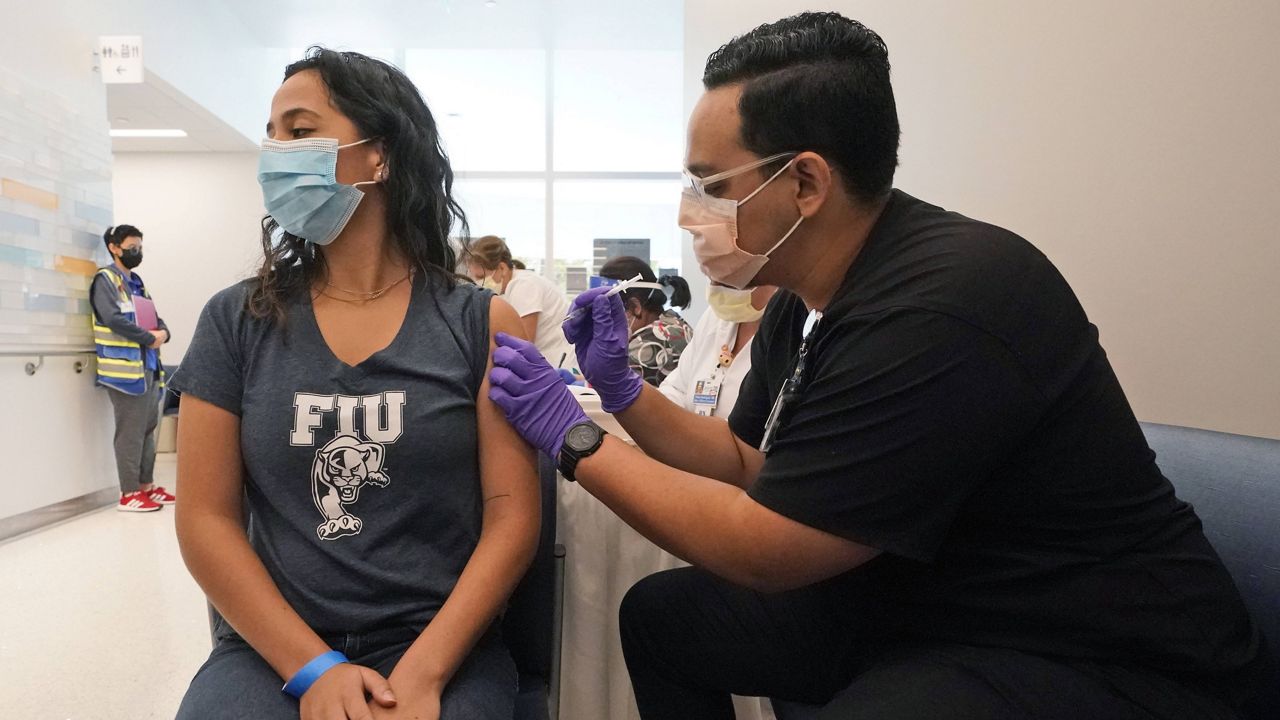American adults no longer have to wait for their turn to be vaccinated for COVID-19 — as of Monday, everyone 16 and over is eligible.
What You Need To Know
- As of Monday, all 50 states, the District of Columbia and Puerto Rico are now offering COVID-19 vaccinations to everyone 16 years of age or older
- The expanded eligibility follows a directive from President Joe Biden, who initially targeted May 1 before later sliding up the deadline
- The U.S. reached a milestone over the weekend by surpassing the 50% mark for adults who have received at least one shot
- But a Quinnipiac University poll last week found that 27% of Americans — and 45% of Republicans — say they don’t plan to get the vaccine
The expanded eligibility follows a directive from President Joe Biden, who initially targeted May 1 before later sliding up the deadline.
“Folks, I have good news: Everybody is eligible as of today to get the vaccine,” Biden said in a video posted on Twitter on Monday. “We have enough of it. You need to be protected, and you need in turn to protect your neighbors and your family. So please get the vaccine.”
All 50 states, the District of Columbia and Puerto Rico are now offering vaccinations to all adults.
Many states had already opened up their eligibility requirements. Hawaii, Massachusetts, New Jersey, Oregon, Rhode Island and Vermont were the last states to do so Monday.
To date, more than 131 million Americans, 39.5% of the population, have received at least one vaccine dose, while more than 84 million, or 25.4%, have been fully vaccinated, according to the Centers for Disease Control and Prevention.
The U.S. reached a milestone over the weekend by surpassing the 50% mark for adults who have received at least one shot.
The country is averaging 3.2 million doses a day, The New York Times reported.
But a large chunk of Americans remain hesitant. According to a Quinnipiac University poll released last week, 27% of Americans — and 45% of Republicans — say they don’t plan to get the vaccine, threatening the country’s pursuit of achieving herd immunity.
Dr. Anthony Fauci, the federal government’s top infectious disease expert and Biden’s chief medical adviser, said Sunday that such reluctance is “quite frustrating.”
“The fact that one may not want to get vaccinated — in this case a disturbingly large proportion of Republicans — only actually works against where they want to be,” Fauci told CNN. “They want to be able to say these restrictions that are put on by public health recommendations are things that they're very concerned about. We’re all concerned about that. We share that concern. But the way you get rid of those restrictions is to get as many people vaccinated as quickly and as expeditiously as possible.”
Potentially fueling further hesitancy was the federal government’s recommendation last week to pause vaccinations using Johnson & Johnson shots amid concerns about blood clots in six women. Fauci said he expects Johnson & Johnson vaccines to resume this week, possibly with restrictions or broader warnings.
Meanwhile, the number of new daily cases is still higher than public health officials are comfortable with. The seven-day average as of Saturday — the last day CDC data are available — was 67,442. That was the third straight day numbers inched lower, but are still up 26% from a month ago.



